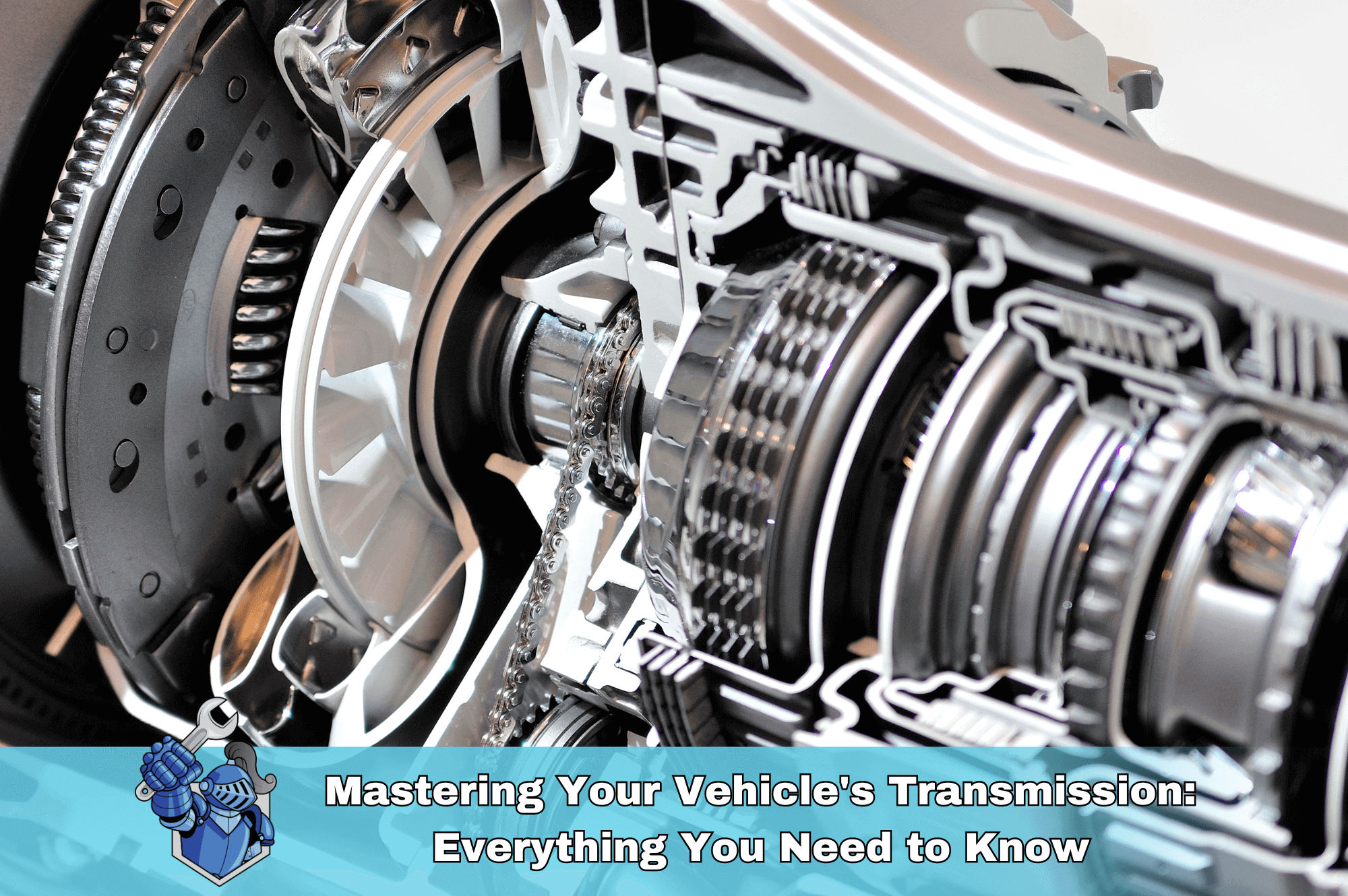When it comes to maintaining your vehicle, one of the most critical components you'll need to keep an eye on is the transmission. This complex piece of machinery is responsible for transferring power from the engine to the wheels, allowing your car to move smoothly and efficiently. Whether you drive an automatic or manual vehicle, understanding how your transmission works, how to maintain it, and what to do if it fails can save you time, money, and a lot of headaches.
Understanding the Transmission
What is a Transmission?
A transmission, also known as a gearbox, is a mechanical component that converts the engine's power into motion. It adjusts the ratio between the engine's output speed and the wheels' rotational speed, ensuring that the engine can operate within its optimal power range. There are two primary types of transmissions: automatic and manual.
Automatic Transmission
Automatic transmissions shift gears on their own, without the driver having to engage a clutch or change gears manually. They use a complex system of hydraulics, sensors, and computer controls to determine the appropriate gear based on the vehicle's speed, engine load, and other factors.
Manual Transmission
Manual transmissions require the driver to manually select and engage gears using a clutch pedal and a gear shift. While they may seem more cumbersome to operate, many driving enthusiasts prefer manual transmissions for the control and engagement they offer.
Common Transmission Issues
Transmissions are intricate and sophisticated systems, and as such, they can develop a variety of issues over time. Recognizing these problems early can prevent more severe damage and costly repairs.
Slipping Gears
If your transmission slips gears, it may feel like your vehicle is changing gears unexpectedly. This issue can result from worn-out gears, low transmission fluid, or problems with the clutch in a manual transmission.
Delayed Engagement
When there's a delay between shifting gears and the transmission responding, it can indicate issues with the transmission fluid or internal components. This delay can be especially noticeable when shifting from park to drive.
Grinding or Shaking
Unusual noises or sensations like grinding or shaking while driving often signal that something is wrong with your transmission. These symptoms can be due to worn-out gears, damaged bearings, or low fluid levels.
Leaking Fluid
Transmission fluid is vital for lubrication and cooling. If you notice red or brown fluid pooling under your car, it's a sign of a transmission leak. Ignoring this can lead to severe transmission damage.
Warning Lights
Modern vehicles are equipped with sensors that monitor the transmission's health. If you see a warning light on your dashboard, it's crucial to have your transmission checked by a professional as soon as possible.
Maintaining Your Transmission
Proper maintenance can extend the life of your transmission and ensure your vehicle runs smoothly. Here are some key maintenance tips:
Regular Fluid Checks
Transmission fluid lubricates the moving parts within the transmission and helps dissipate heat. Regularly check the fluid level and top it off as needed. Most manufacturers recommend changing the transmission fluid every 30,000 to 60,000 miles.
Use the Right Fluid
Different transmissions require different types of fluid. Always use the fluid specified in your owner's manual to ensure optimal performance and avoid damage.
Avoid Overheating
Heat is a transmission's worst enemy. Avoiding prolonged idling, ensuring your cooling system is functioning correctly, and not overloading your vehicle can help prevent overheating.
Regular Inspections
Have your transmission inspected by a professional at regular intervals. They can detect potential issues early and recommend preventive measures to keep your transmission in top shape.
Dealing with Transmission Failure
Despite your best efforts, transmission failure can still occur. When it does, it's essential to address the issue promptly to avoid further damage.
Recognizing Transmission Failure
Some signs of transmission failure include the inability to shift gears, strange noises, burning smells, or a complete loss of power. If you experience any of these symptoms, it's crucial to have your vehicle inspected immediately.
Repair or Replace?
Depending on the severity of the damage, you may need to decide whether to repair or replace your transmission. Repairs can be less expensive but may not always be the best long-term solution. Replacing the transmission can be costly but may provide a more reliable fix.
Warranty and Service Contracts
If your vehicle is under warranty or you have an extended service contract, check to see if transmission repairs are covered. At NobleQuote, we offer comprehensive vehicle service contracts that can help cover the cost of transmission repairs, giving you peace of mind on the road.
Frequently Asked Questions (FAQ)
How often should I change my transmission fluid?
Most manufacturers recommend changing your transmission fluid every 30,000 to 60,000 miles. However, it's always best to consult your owner's manual for specific guidelines.
What are the signs of a failing transmission?
Signs of a failing transmission include slipping gears, delayed engagement, grinding or shaking, leaking fluid, and warning lights on your dashboard.
Can I drive with a transmission problem?
It's not advisable to drive with a transmission problem. Doing so can cause further damage and may result in a more expensive repair. If you suspect an issue, have your vehicle inspected by a professional as soon as possible.
How much does it cost to repair or replace a transmission?
The cost of repairing or replacing a transmission can vary widely depending on the make and model of your vehicle and the extent of the damage. Repairs can range from a few hundred to several thousand dollars, while a complete replacement can cost several thousand dollars.
Does NobleQuote cover transmission repairs?
Yes, at NobleQuote, we offer extended service contracts that can cover transmission repairs. Our plans are designed to provide comprehensive coverage and peace of mind for drivers. Learn more about our coverage options here.
Can I prevent transmission problems?
While you can't completely prevent transmission problems, regular maintenance, using the correct fluid, avoiding overheating, and regular inspections can significantly reduce the risk of transmission issues.
Conclusion
Your vehicle's transmission is a vital component that requires proper care and maintenance to ensure a smooth and safe driving experience. By understanding how your transmission works, recognizing potential issues, and taking preventive measures, you can keep your transmission in top shape and avoid costly repairs. At NobleQuote, we're here to help you protect your vehicle with our comprehensive service contracts. For more information, visit our Learning Center and discover how we can help you achieve total peace of mind on the road.
Suggestions for you
Read MoreLet’s work together
Every week we showcase three charitable organizations that our donations are sent to. Our clients are able to choose which of these three will receive their gift when they add coverage to their vehicle...




